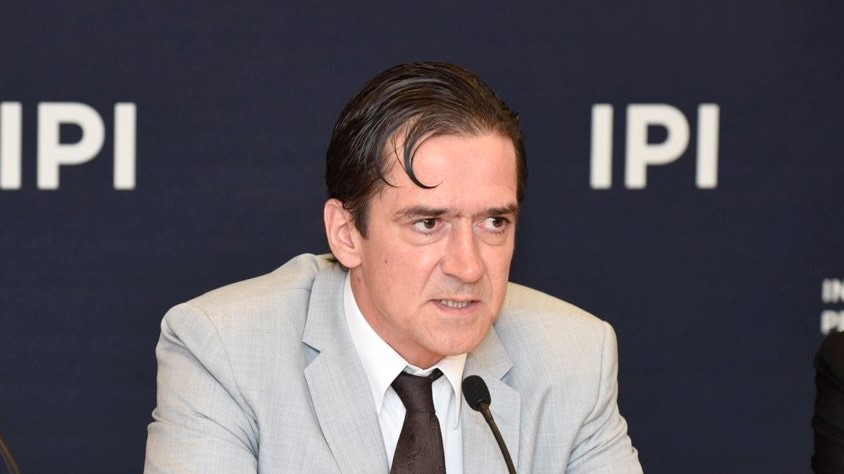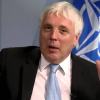Kai Sauer, who is now Under-Secretary of State for Foreign and Security Policy at the Finnish Ministry of Foreign Affairs, has also held important roles in and for Kosovo. He was the “right hand” of President Ahtisaari in the Vienna talks, where Kosovo’s independence emerged.
His past experience in UNMIK, Prishtina, and in the region, served him well in this task. But he has kept in touch with Kosovo while serving other duties as well and he still has Kosovo in mind.
Kai Sauer now seeks to help Kosovo in the process of dialogue with Serbia, to normalize relations with its northern neighbor, and to move quickly and surely towards the European Union.
In an interview with Demokracia.com, Kai Sauer shares his views on Kosovo and the region and the EU.
Demokracia.com: How did you become involved in the Kosovo issue?
Kai Sauer: After having worked in Bosnia-Herzegovina, Croatia and New York, I was asked to accompany the newly appointed SRSG, former PM of Finland, Mr. Harri Holkeri, to join him for his assignment with UNMIK. It was a difficult period for Kosovo as the “Standards before Status” approach was not accepted by the locals and the international community had not much interest in dealing with Kosovo. The lowest point came in March 2004 when riots started and the Kosovo Serb minority was attacked.
Demokracia.com: You were the “right hand” of President Ahtisaari in the status talks. What was that like?
Kai Sauer: Professionally, it was a positive experience to work as a collaborator of an experienced peace negotiator and former president. Also, the team was full of talent. We had excellent colleagues representing different governments and institutions. Ahtisaari’s deputy, ambassador Albert Rohan deserves a special credit. He was in his own league as a connoisseur of the region. The product we were drafting was complex and comprehensive, which required a broad and thorough consultation process. I have never traveled as much as during my time with president Ahtisaari.
Demokracia.com: How did the process proceed? What were the ups and downs?
Kai Sauer: These processes usually follow a similar pattern. First, there is a preparatory phase when you put together the team, and consult the parties and key stakeholders. After that, you enter the negotiation phase, which usually is time-demanding and intense. Finally, there is the “marketing & rollout” when the product is introduced to the international community.
There were many “ups” as Ahtisaari was an inspiring and encouraging leader. Many UN colleagues confessed that they had never experienced such an approachable superior. I guess the UN and Finland are representing opposite poles when it comes to hierarchical work culture.
The process coincided with the transition of the UN Secretary-Generals when Kofi Annan ended his term and handed over to Ban Ki-moon. Both were very supportive of our work, although Ban might have felt a bit ambushed when the Ahtisaari Plan was not acceptable to the entire Security Council.
The “ups” also included the commitment of many international institutions to offer their expertise to the common effort. The Ahtisaari Plan was a collective undertaking which included contributions not only from the UN, but also the EU, Nato, UNESCO, OSCE and the Venice Commission, just to name a few.
There were very few “downs”, perhaps only one, but a really deep one, namely the fact that the the UN Security Council did not adopt Ahtisaari’s proposal because of the Russian rejection.
The final “up” came in 2008 when president Ahtisaari was granted the Nobel peace price. I think the entire team felt proud about that.
Demokracia.com: What was your personal experience? What were your hopes and your fears?
Kai Sauer: Having worked with the Kosovo dossier has been a rich and interesting
experience, which has had a great impact on my professional life. I am happy to see that Kosovo has made so much progress over the past 20 years. Institutions have grown stronger and there is economic growth. So the glass might be half-full. I hope this progress will continue.
On the other hand, there still is unfinished business. Kosovo and Serbia should be able to live side by side as equal neighbours. To quote the former Finnish President J.K. Paasikivi: “Geography cannot be changed”. It means that you have to accept certain facts and act accordingly. Also, the EU and the US must refocus their highest political attention to the region.
In sum, my fear is that Kosovo and Serbia become prisoners of some short-sighted national politics and international inertia.
Demokracia.com: It is more than two decades since the war ended. Kosovo is an independent country for more than a decade now? How do you see Kosovo today?
Kai Sauer: Kosovo seems to be undergoing a political transition. Like in many other countries, also in Kosovo the old established parties have made way to a new political power, which now has the responsibility to deliver. My wish would be that while addressing all the domestic challenges, Kosovo’s main foreign policy goal is to engage in the EU-led dialogue with Serbia.
Demokracia.com: The international context has changed a lot in the last two decades. Not all the changes are better for Kosovo? In what international context does Kosovo find itself today?
Kai Sauer: Indeed the world has changed. We are dealing with global challenges like global warming, pandemics and migration. In many areas the UN Security Council is unable to produce results and, looking at the big picture, respect for the rules-based international order, multilateralism and human rights is in shorter supply.
The nature of aggression is also changing as we have seen with the increased number of cyber attacks and hybrid activities. In countering and resisting these new challenges it takes a united and resilient society.
So, it is not a good time for a small or big country to be alone or act unilaterally. We have to work with our neighbours as well as regional and global partners for solutions.
Demokracia.com: How do you see the future of Kosovo? And of the region?
Kai Sauer: Kosovo has a young population and Western Europe is ageing. This could be a win-win situation. On the other hand, you don’t want to lose the entire young generation as migrants – and we cannot absorb them. Conditions must be created for them to find work also in Kosovo. In addition, they need to be able to seek employment also in the region.
Efforts should be intensified to promote regional economic and citizens integration and Kosovo should have an equal seat at these tables. The Nordic countries offer a good example. They created a passport union already in the 1950’ies.
Demokracia.com: EU is not even talking enlargement anymore. While “EU perspective” remains a mantra, more and more people think that this mantra does not hold any truth actually. How do you see the relationship between Kosovo and EU developing? And the relation between the Western Balkans and the EU?
Kai Sauer: Historically and culturally, Kosovo and the region belong to Europe. However, the EU is a community of values, geography only does not qualify for EU membership. On the path to the EU, the key is fulfilling the criteria. My country did her utmost to meet – to the final dot – the EU requirements before being accepted in 1995. I hope that the Western Balkan countries one day can become constructive EU members. In this process, also the EU should refrain from moving the goal posts.





